Find Help
More Items From Ergsy search
-
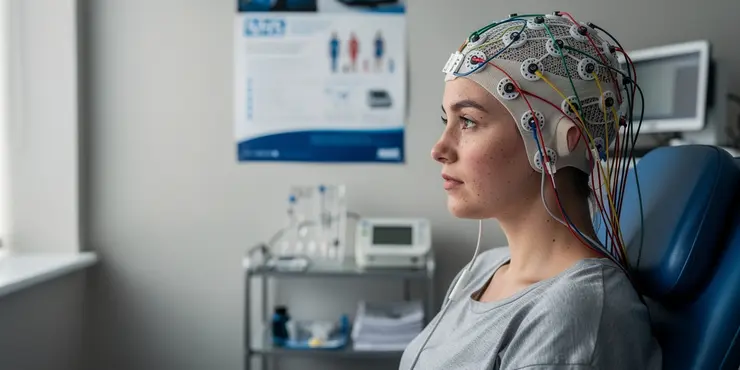
Epilepsy research: EEG | NHS
Relevance: 100%
-
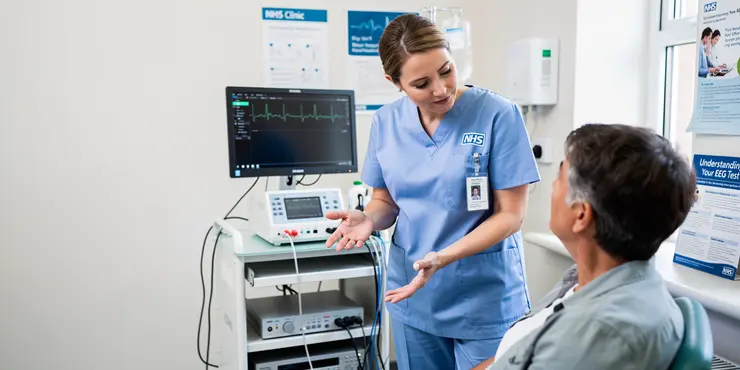
Epilepsy research: EEG | NHS
Relevance: 98%
-
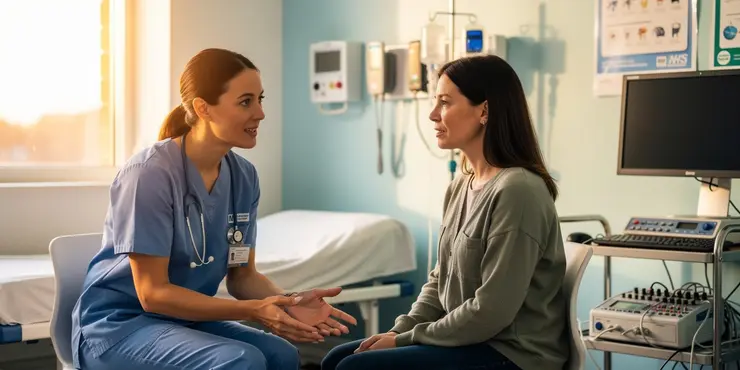
Neurophysiology EEG Patient Information
Relevance: 63%
-
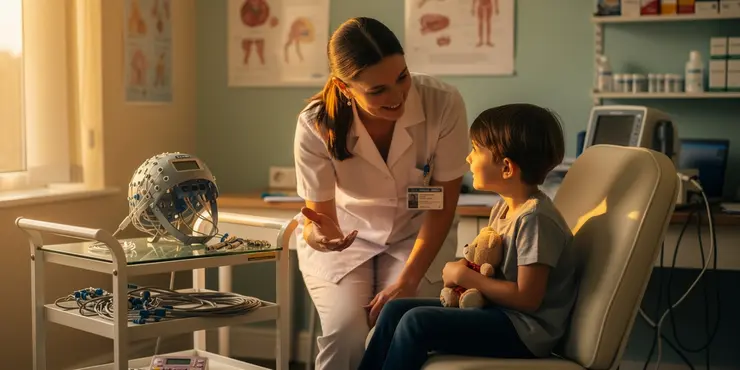
What happens when my child has an EEG?
Relevance: 58%
-
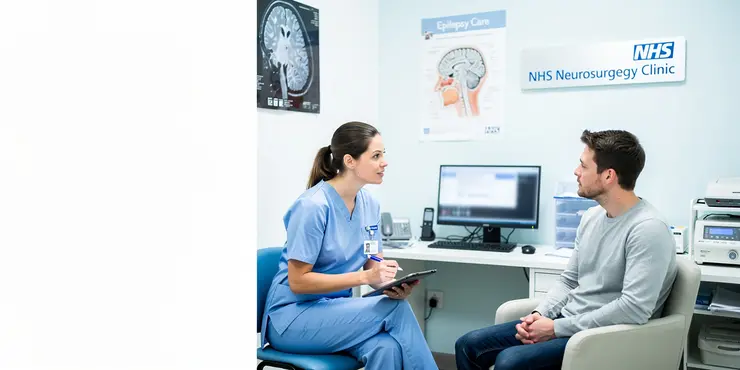
Neurosurgery for Epilepsy
Relevance: 56%
-
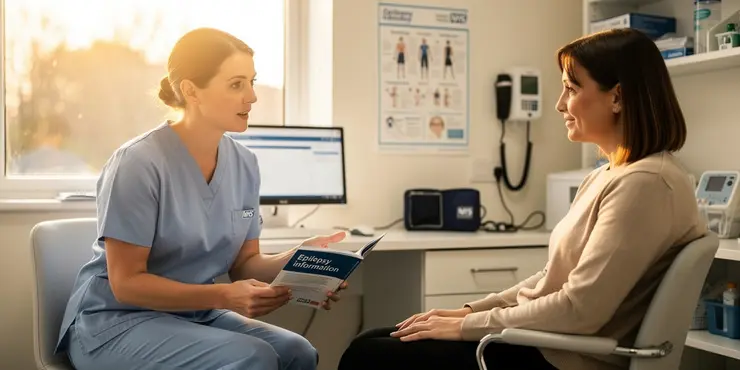
Epilepsy - What is Epilepsy and What Causes Seizures - NHS A to Z - Dr Gill
Relevance: 52%
-

Epilepsy - My Story | NHS
Relevance: 52%
-
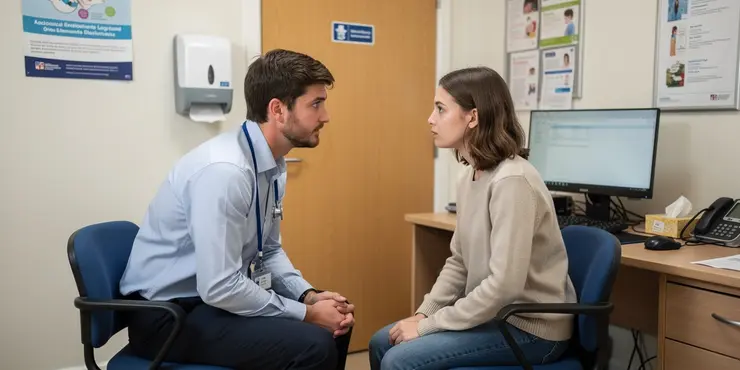
Can meningitis cause long-term complications?
Relevance: 16%
-
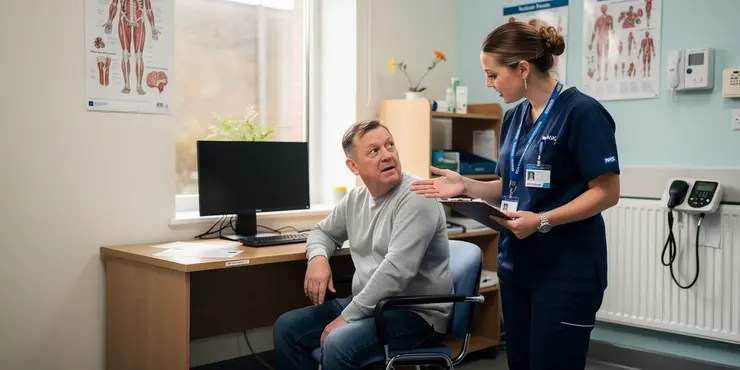
What are the potential benefits of CBD?
Relevance: 15%
-
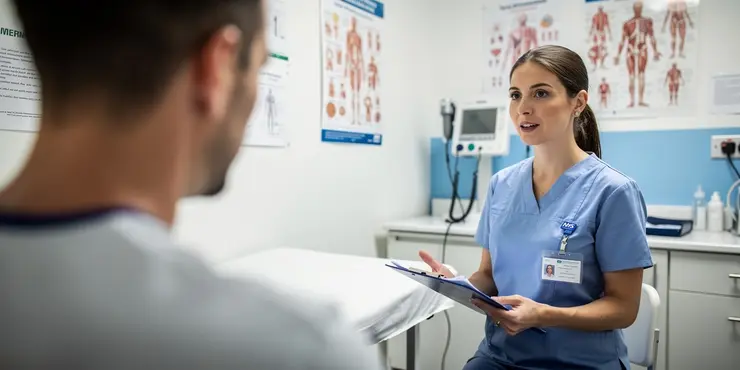
Are there health benefits to using cannabis extract?
Relevance: 14%
-
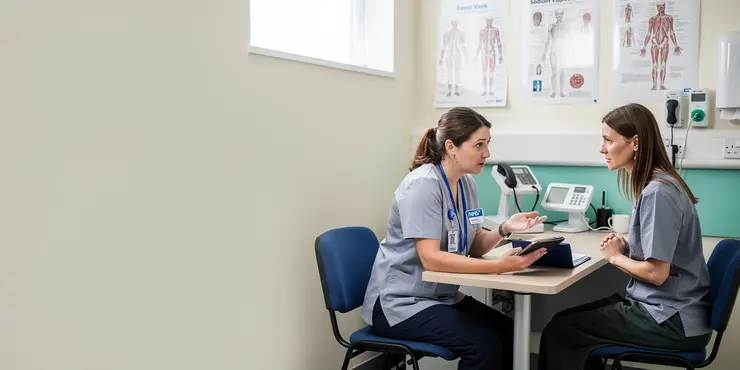
Am I affected by Sodium Valproate?
Relevance: 14%
-

What is CBD?
Relevance: 13%
-
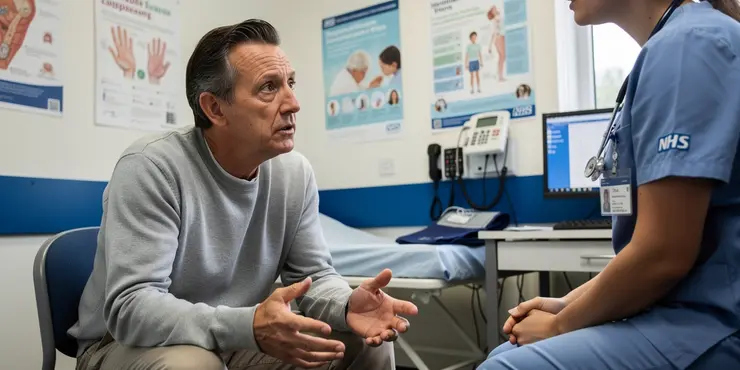
What are the uses of cannabis extract?
Relevance: 10%
-
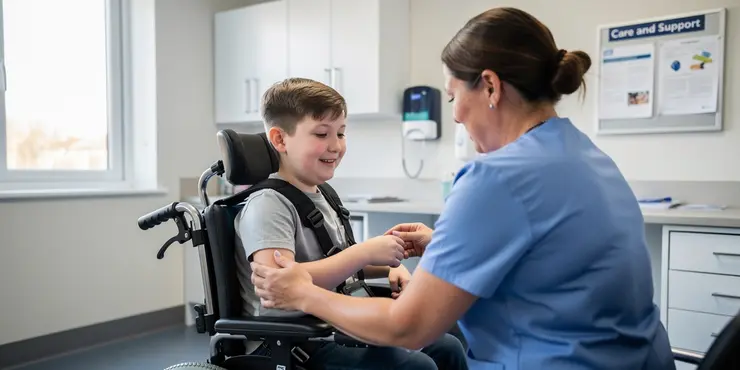
Profound intellectual and multiple disabilities | NHS
Relevance: 9%
-
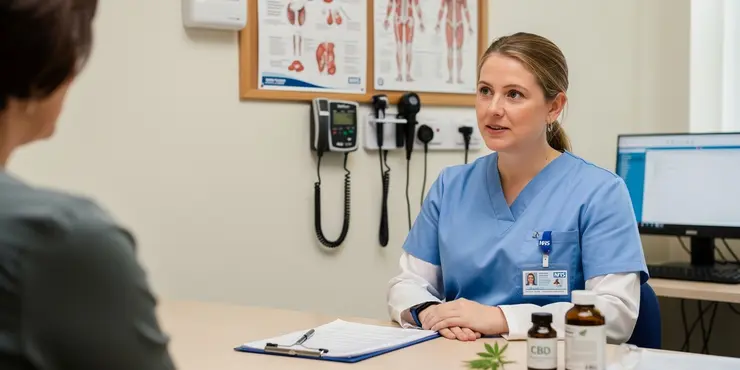
How does CBD work?
Relevance: 8%
-
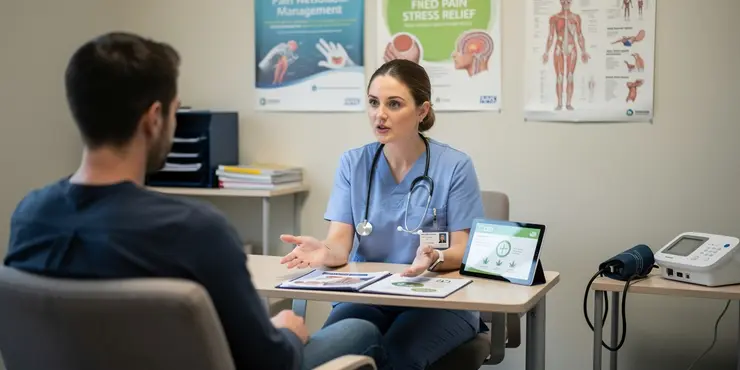
What is CBD?
Relevance: 8%
-
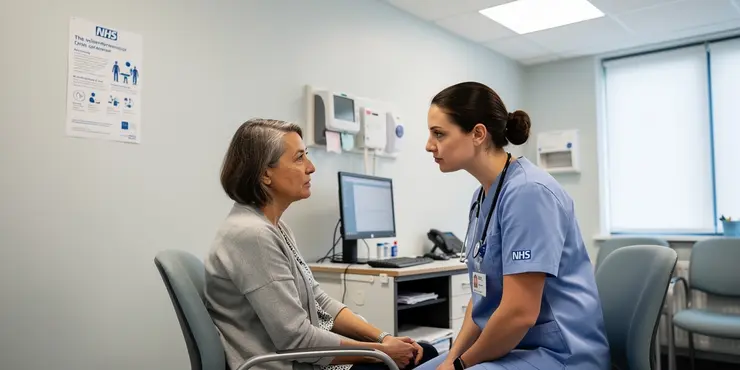
Is CBD legal?
Relevance: 6%
-
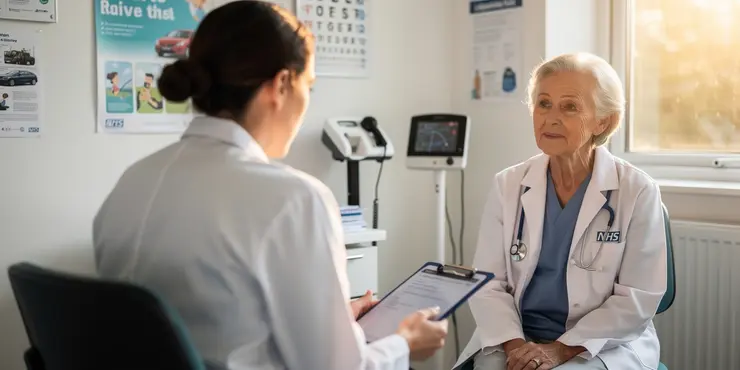
Are there legal requirements regarding driving for seniors over a certain age?
Relevance: 6%
-
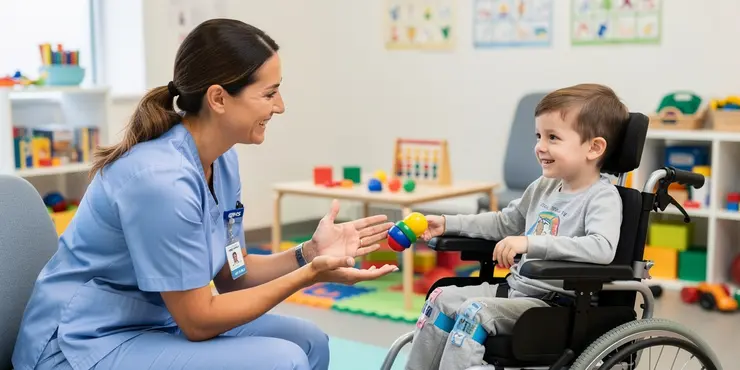
Cerebral palsy | NHS
Relevance: 6%
-

How potent is cannabis extract?
Relevance: 6%
-
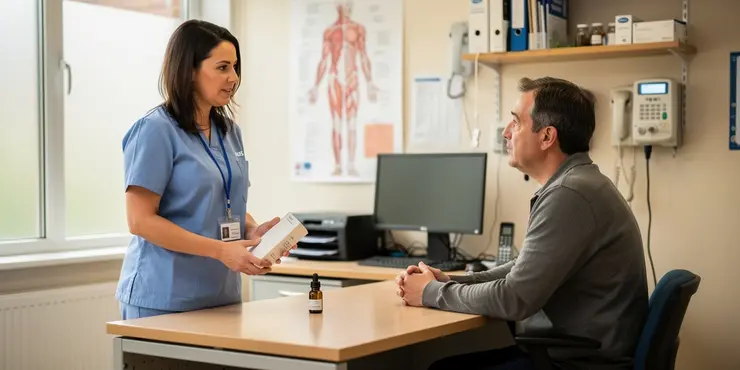
What is the entourage effect in relation to cannabis extracts?
Relevance: 6%
-

Is cannabis extract legal?
Relevance: 6%
-
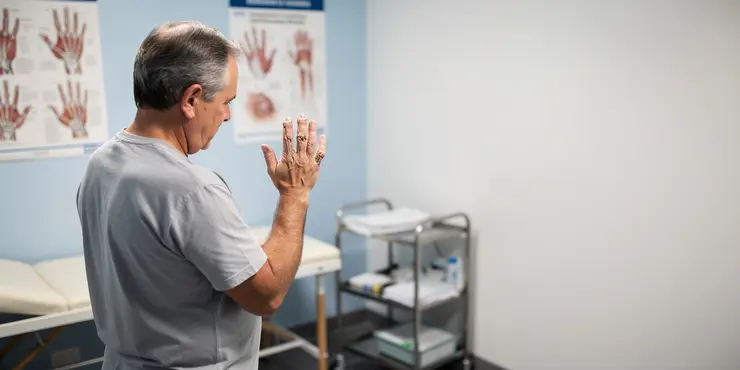
Dupuytrens
Relevance: 3%
-

What is cannabis extract?
Relevance: 3%
-
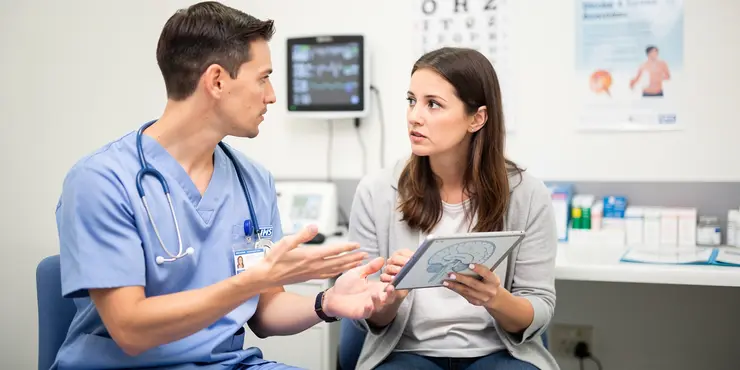
What is a Subarachnoid Hemorrhage?
Relevance: 3%
-
Can you overdose on CBD?
Relevance: 3%
-
How is cannabis oil different from other extracts?
Relevance: 3%
-
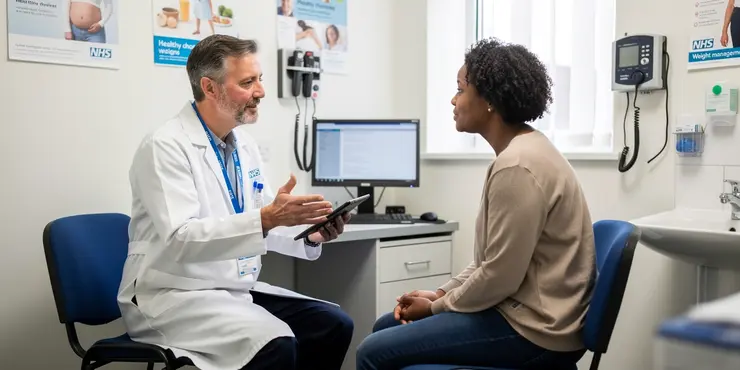
What are the less common but serious side effects of weight loss drugs?
Relevance: 3%
-

Can adults have autism?
Relevance: 2%
Epilepsy Research: EEG and the NHS
Introduction to Epilepsy
Epilepsy is a neurological disorder characterized by recurrent, unprovoked seizures. It affects around 600,000 people in the United Kingdom, impacting their quality of life and daily activities. Understanding and diagnosing epilepsy is a priority for healthcare providers, including the National Health Service (NHS).
Role of EEG in Epilepsy Diagnosis
An electroencephalogram (EEG) is a crucial diagnostic tool used in epilepsy research and treatment. EEG measures electrical activity in the brain, identifying abnormal patterns that might indicate epilepsy. For those experiencing seizures, an EEG can help pinpoint the type and source of the disorder, aiding in the formulation of an effective treatment plan.
NHS Guidelines and Services
The NHS provides extensive support for epilepsy patients, including access to EEG diagnostics. The NHS guidelines recommend that anyone suspected of having epilepsy undergo an EEG to confirm diagnosis and guide treatment decisions. The test is non-invasive and typically involves a patient wearing a cap with electrodes attached to it, which record brain activity over a set period.
Recent Advances in EEG Technology
Recent research in the UK has focused on improving EEG technology. Advancements include high-density EEG systems, which provide more detailed brain activity maps, and ambulatory EEG devices, allowing for long-term monitoring in patient's home environments. These innovations enhance diagnostic accuracy and patient comfort.
Impact of Research on Treatment
Ongoing research funded by medical research councils and charities in the UK continues to refine EEG technology and epilepsy treatment. Improved diagnostic tools lead to better individualized care plans, reducing the frequency and severity of seizures for many patients. Researchers also explore the potential of EEG in predicting seizures before they occur, offering a new frontier in epilepsy management.
Conclusion
Epilepsy research, particularly involving EEG, is vital for advancing diagnosis and treatment in the UK. The NHS plays an essential role in providing these diagnostic services, ensuring that individuals with epilepsy receive timely and accurate care. Continued research and technological innovation promise to enhance the quality of life for those affected by this challenging neurological condition.
Epilepsy Research: EEG and the NHS
Introduction to Epilepsy
Epilepsy is a brain condition that causes seizures. People with epilepsy have seizures often and without warning. About 600,000 people in the UK have epilepsy. It can make daily life hard. Doctors and nurses want to learn more and help those with epilepsy.
Role of EEG in Epilepsy Diagnosis
An EEG is a special test for people with epilepsy. It checks the brain's electrical activity. If the brain shows unusual patterns, it might be epilepsy. EEG helps doctors find out more about the seizures and how to treat them. This test helps make a good plan for care.
NHS Guidelines and Services
The NHS helps people with epilepsy. They offer EEG tests if they think someone might have epilepsy. The NHS says it's important to get an EEG to find out if someone has epilepsy. The test is easy and safe. A person wears a special cap with sensors that check their brain.
Recent Advances in EEG Technology
In the UK, scientists are improving EEG tests. New EEGs can take better brain pictures. Some EEGs can be used at home, so people can live their normal lives while they are tested. These make the tests better and more comfortable for people.
Impact of Research on Treatment
Research in the UK is helping make EEG tests and treatments better for epilepsy. With better tests, doctors can give patients the right treatment. This helps reduce seizures and make them less severe. Scientists are also looking at how EEGs might tell when a seizure is about to happen.
Conclusion
Research on epilepsy and EEG tests is very important in the UK. The NHS provides these tests to help people with epilepsy get the right care fast. New research and better technology can help people with epilepsy live better lives.
Frequently Asked Questions
What is an EEG?
An EEG, or electroencephalogram, is a test used to evaluate the electrical activity in the brain. It is commonly used to diagnose conditions such as epilepsy.
Why is an EEG used to diagnose epilepsy?
An EEG can detect abnormal electrical activity in the brain that is associated with epileptic seizures, making it an essential tool in diagnosing epilepsy.
How is an EEG performed?
During an EEG, small electrodes are attached to the scalp with conductive paste or gel. The person being tested may be asked to sit still, close their eyes, or perform certain activities while the machine records their brain's electrical activity.
Is an EEG painful?
No, an EEG is a non-invasive and painless procedure. The electrodes on the scalp are attached using adhesive, and there are no electric shocks involved.
How long does an EEG take?
A standard EEG typically takes about 30 to 60 minutes, though longer monitoring over hours or even days (ambulatory EEG) may be required in certain cases.
What should I do to prepare for an EEG?
Before an EEG, you may be asked to wash your hair but avoid using conditioner or hair styling products. You should also follow any instructions given by your doctor regarding sleep and medication.
Can I eat or drink before an EEG?
Yes, you can usually eat and drink as normal before an EEG unless your doctor advises otherwise. However, you should avoid consuming caffeine for several hours before the test.
What should I expect during an EEG?
During the EEG, you will be asked to relax in a reclined chair or lie on a bed while the electrodes record your brain's activity. You may need to follow simple instructions such as opening and closing your eyes or taking deep breaths.
Are there any risks associated with an EEG?
EEGs are very safe and have no significant risks. Rarely, the test may trigger a seizure in a person with epilepsy, but medical staff are always present to manage such situations.
How will I get my EEG results?
Your EEG results will be reviewed by a neurologist or specialist, and your doctor will discuss the findings with you during a follow-up appointment.
What do abnormal EEG results mean?
Abnormal EEG results may indicate epilepsy or other brain disorders. Your doctor will interpret the findings and discuss what they mean for your specific condition.
Can an EEG always detect epilepsy?
Not always. Sometimes, the electrical activity associated with epilepsy does not occur during the test, and additional tests may be needed to accurately diagnose epilepsy.
Will I have to stop my medication before an EEG?
Do not stop taking your medication unless your doctor instructs you to do so. Some medications can affect the results, and your doctor will provide specific guidance based on your situation.
Can children have an EEG?
Yes, EEGs can be performed on children. The procedure is adapted to make the child as comfortable as possible, and parents may be able to stay with their child during the test.
How often will I need an EEG if I have epilepsy?
The frequency of EEGs will vary depending on your individual condition and the recommendations of your healthcare provider. In some cases, only one EEG is needed, while in others, regular monitoring may be necessary.
What is an EEG?
EEG is a test that looks at your brain.
It shows the electrical activity in your brain.
This test is safe and does not hurt.
Doctors use it to find out more about your brain.
If you want help understanding, you can ask someone to explain it or use pictures.
An EEG is a test for checking the brain's activity. It helps doctors find problems like epilepsy.
Why do doctors use an EEG to check for epilepsy?
An EEG is a test that looks at your brain. It helps doctors see if there are any unusual patterns. This can show if someone has epilepsy.
Epilepsy is a condition where someone has seizures. An EEG helps find out if the brain is having these seizures.
Doctors use an EEG because it is safe and gives them important information.
To help understand more about EEGs and epilepsy, you can:
- Watch simple videos that explain EEGs.
- Ask your doctor or nurse to explain in simple words.
- Use picture books about the brain and seizures.
An EEG is a test that looks at the electrical signals in the brain. These signals can sometimes show if someone might have epileptic seizures. This makes EEGs very important for doctors to check if a person has epilepsy.
How do doctors use an EEG?
Doctors use a test called an EEG to see how your brain works.
Here is how it is done:
- You go to a special room.
- You sit or lie down.
- A doctor puts soft, sticky pads on your head.
- The pads have wires that connect to a machine.
- The machine shows how your brain makes electricity.
This test does not hurt.
If you have questions, you can ask the doctor or nurse.
You can use pictures to help understand, or ask someone to read to you.
During an EEG test, small stickers with wires are put on the head using a special paste or gel. The person taking the test might need to sit still, close their eyes, or do certain things while the machine checks the brain's signals.
Does an EEG hurt?
No, an EEG does not hurt. An EEG is a test to see how your brain works. It uses small stickers on your head to watch brain waves. It is safe and does not hurt.
If you feel worried or scared, you can:
- Ask someone to stay with you.
- Listen to calming music.
- Take deep breaths to relax.
No, an EEG is safe and does not hurt. The electrodes are small patches placed on the head with sticky stuff. They do not use any electric shocks.
How long does an EEG take?
An EEG is a test for your brain. It checks how your brain is working.
The EEG test can last between 20 minutes and 2 hours.
If you want help to understand, you can ask a friend or family member to explain it to you.
Some people like to use a timer so they know how long the test is taking.
A regular brain test, called an EEG, usually takes 30 to 60 minutes. Sometimes the test needs to be longer, maybe for a few hours or even days. This longer test is called an "ambulatory EEG."
Here are some tips to help understand better:
- Try breaking the text into smaller parts.
- Use pictures or videos to learn more about EEGs.
- Ask someone you trust to explain it to you.
How can I get ready for an EEG?
Before getting an EEG test, you might need to wash your hair. Do not use conditioner or any hair products. Follow what your doctor tells you about sleep and medicine.
Can I have food or drinks before an EEG?
You can eat and drink as usual before an EEG. It is important to have a normal meal, so don’t skip breakfast!
A few rules to follow:
- Do not drink anything with caffeine, like cola, coffee, or tea before the test. These drinks can affect the results.
- Drink water or juice instead.
If you have questions, ask your nurse or doctor. They are there to help you.
Yes, you can eat and drink like normal before an EEG test. But don't have anything with caffeine, like coffee or cola, a few hours before the test. If your doctor says something different, follow what they say.
What happens during an EEG?
When you have an EEG, here is what will happen:
- You go to the hospital or a special clinic.
- A nurse or doctor will put small patches on your head. These are called electrodes.
- The electrodes are connected to a machine that reads your brain waves.
- You need to stay still and relax during the test.
- The test does not hurt.
To help you feel calm, you can:
- Take deep breaths.
- Think about a happy place.
You can bring someone with you for support if you want.
During the EEG test, you will sit in a comfy chair or lie on a bed. The test will check what your brain is doing. Little stickers called electrodes are put on your head to do this. You might have to do easy things like open and close your eyes or breathe in and out deeply.
Is an EEG test safe?
An EEG is usually safe.
Sometimes, you might feel a bit strange after. This can happen if you have epilepsy.
It is important to be calm and stay still during the test.
Having a helper with you can make you feel more comfortable.
EEGs are very safe. There is little chance of something bad happening. Sometimes, the test might cause a seizure, but this is not common. If this happens, doctors and nurses are there to help right away.
How will I see my EEG test results?
After your EEG test, the doctor will look at the results. The doctor will then talk to you about what they found. You might talk to your doctor in person or over the phone.
If you have trouble understanding, you can ask an adult you trust to help. You can also use pictures or videos to learn more about EEG tests. Remember, it is okay to ask questions if you are unsure about something.
A doctor who knows a lot about EEGs will look at your test results. Then, your own doctor will talk to you about what they found out when you visit them next time.
What do strange EEG results mean?
An EEG test looks at the brain's activity. Sometimes, the results look different from usual. This can show that something might be wrong with the brain.
If the EEG results are strange, it might mean:
- There is a problem, like epilepsy.
- The person had a seizure.
- There could be a sleep problem.
For help, talk to a doctor. They can explain what it means. You can ask questions to understand better.
If reading is tough, try these:
- Ask someone to read it to you.
- Draw pictures to help understand.
- Use apps that read text aloud.
If an EEG test shows something unusual, it might mean you have epilepsy or another brain problem. Your doctor will look at the results and talk to you about what they mean for you.
Can an EEG always find epilepsy?
An EEG is a test that looks at brain waves. It helps doctors see if someone has epilepsy. But sometimes, an EEG might not find epilepsy. Even if the EEG is normal, a person can still have epilepsy.
Here are some ways to help understand EEG results:
- Ask the doctor to explain the EEG in simple words.
- Use pictures or videos to learn about EEGs and epilepsy.
- Write down questions to ask the doctor.
No, not always. Sometimes, when the doctors do the test, they don't see the brain waves that show epilepsy. If this happens, more tests might be needed to find out if someone has epilepsy for sure.
Do I need to stop taking my medicine before an EEG?
Keep taking your medicine until your doctor tells you to stop. Some medicines can change test results, so your doctor will give you special advice just for you.
Can kids have a brain test?
Yes, kids can have a brain test. This test is called an EEG.
An EEG test checks how your brain is working.
It does not hurt. It is safe and easy.
During the test, you wear a special hat with wires. The hat reads brain waves.
Some things to help kids during the test:
- Bring a favorite toy or blanket to feel comfy.
- Listen to calming music with headphones.
- Breathe slowly and think happy thoughts.
- Ask questions if you are curious or worried.
Yes, doctors can do EEG tests on children. They make the test as easy and comfy as they can for the child. Parents can often stay with their child during the test to help them feel safe.
How many times do I need an EEG if I have epilepsy?
If you have epilepsy, you might need an EEG test. An EEG is a test that looks at your brain waves.
Your doctor will tell you when you need an EEG. It might be once or a few times.
Everyone is different, so your doctor will decide what is right for you.
If things change or you feel different, tell your doctor. They might want to check your brain waves again.
Here are some things that can help:
- Ask your doctor questions if you do not understand.
- Bring someone with you to help remember what the doctor says.
- Write down any questions you have before your visit.
How often you need to have an EEG depends on your health and what your doctor says. You might need just one EEG, or you might need to have them often. It all depends on you.
Useful Links
This website offers general information and is not a substitute for professional advice.
Always seek guidance from qualified professionals.
If you have any medical concerns or need urgent help, contact a healthcare professional or emergency services immediately.
Some of this content was generated with AI assistance. We’ve done our best to keep it accurate, helpful, and human-friendly.
- Ergsy carfully checks the information in the videos we provide here.
- Videos shown by Youtube after a video has completed, have NOT been reviewed by ERGSY.
- To view, click the arrow in centre of video.
- Most of the videos you find here will have subtitles and/or closed captions available.
- You may need to turn these on, and choose your preferred language.
- Go to the video you'd like to watch.
- If closed captions (CC) are available, settings will be visible on the bottom right of the video player.
- To turn on Captions, click settings .
- To turn off Captions, click settings again.
More Items From Ergsy search
-

Epilepsy research: EEG | NHS
Relevance: 100%
-

Epilepsy research: EEG | NHS
Relevance: 98%
-

Neurophysiology EEG Patient Information
Relevance: 63%
-

What happens when my child has an EEG?
Relevance: 58%
-

Neurosurgery for Epilepsy
Relevance: 56%
-

Epilepsy - What is Epilepsy and What Causes Seizures - NHS A to Z - Dr Gill
Relevance: 52%
-

Epilepsy - My Story | NHS
Relevance: 52%
-

Can meningitis cause long-term complications?
Relevance: 16%
-

What are the potential benefits of CBD?
Relevance: 15%
-

Are there health benefits to using cannabis extract?
Relevance: 14%
-

Am I affected by Sodium Valproate?
Relevance: 14%
-

What is CBD?
Relevance: 13%
-

What are the uses of cannabis extract?
Relevance: 10%
-

Profound intellectual and multiple disabilities | NHS
Relevance: 9%
-

How does CBD work?
Relevance: 8%
-

What is CBD?
Relevance: 8%
-

Is CBD legal?
Relevance: 6%
-

Are there legal requirements regarding driving for seniors over a certain age?
Relevance: 6%
-

Cerebral palsy | NHS
Relevance: 6%
-

How potent is cannabis extract?
Relevance: 6%
-

What is the entourage effect in relation to cannabis extracts?
Relevance: 6%
-

Is cannabis extract legal?
Relevance: 6%
-

Dupuytrens
Relevance: 3%
-

What is cannabis extract?
Relevance: 3%
-

What is a Subarachnoid Hemorrhage?
Relevance: 3%
-
Can you overdose on CBD?
Relevance: 3%
-
How is cannabis oil different from other extracts?
Relevance: 3%
-

What are the less common but serious side effects of weight loss drugs?
Relevance: 3%
-

Can adults have autism?
Relevance: 2%


